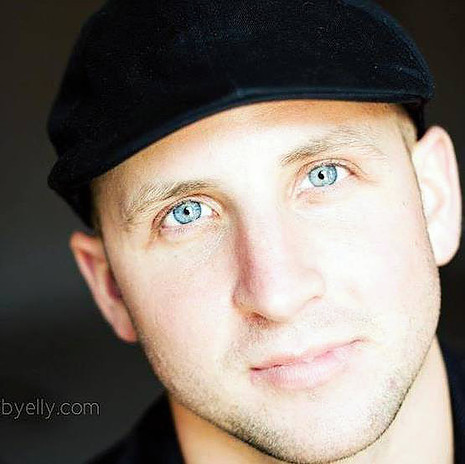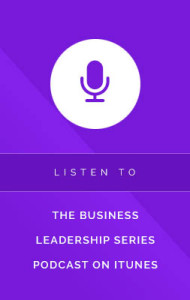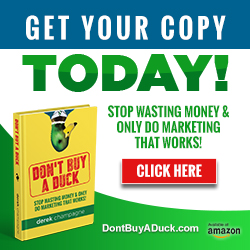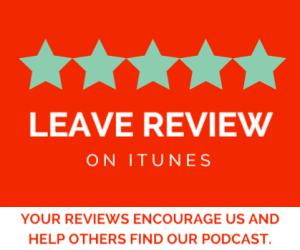BLS Interview with Mathew Proud, CMO of App “Friender,” Part 1

Derek Champagne, CEO of The Artist Evolution, interviews Mathew Proud. Mathew is the Chief Marketing Officer for the revolutionary new app, Friender. Friender make it easy for people to connect with and make new friends with common interests.
Mathew also talks about his unique Snapchat channel and the value of Snapchat for growing your business.
Learn more at www.frienderapp.com
Derek: Welcome to the Business Leadership Series, where our goal is to inspire you to become the best leader that you can be. I’m your host Derek Champagne, today we’ve got a special guest that I’m excited about; we’ve got the Chief Marketing Officer for Friender, Mathew Proud. Mathew, thanks for being here with us today.
Mathew: Hey thank you for having me. I definitely look forward to our conversation.
Derek: So you told me you were in Arizona, how are you liking it out there?
Mathew: Oh I love it. I love it in Tempe. I’m from the cold in Chicago area, so the mountains out here and the warm winters are definitely to my liking, compared to the bitter winters of Chicago.
Derek: I’m going to ask you in a minute about Freddy the friendly T-rex but I saw him running around ASU and back in my music days, we played ASU quite often. I love that school and I thought that was cool. Seeing the students’ reactions as you had that T-rex running around the campus.
Mathew: [laughs] Thank you. I was reading a book recently, called Marketing Outrageous, I forget who it was by, but they were talking about having to stand out in a world where everything’s so cluttered. And I happened to run across that T-rex on YouTube and I was like, “How could that not grab someone’s attention?” So I incorporated it into the marketing campaign.
Derek: So were you surprising Stephens with that? I mean, they really weren’t expecting you running – having the T-rex running around campus.
Mathew: Yes, it was. Basically, everyone that walked by us, had their phone out and was Snapchatting it, so it definitely created really good exposure for us.
Derek: That’s really cool, everyone was listening and I encourage you today – I’ll put a link up with this podcast but you want to look up Freddy the friendly T-rex in ASU and that should pop up I believe. I would encourage that, very cool. So tell me about Friender, I did download it so I’m a customer. Why don’t you tell me a little bit about what the vision was for Friender. I like the branding on it, it’s really clever. So why don’t you explain to our audience what that is.
Mathew: Thank you. Yes, Friender- so basically about a year and a half, two years ago, me and a couple of friends of mine, we travelled a lot for business. We were moving around from state to state, all over the place constantly and we had trouble meeting new people in that area. Say if we were going to stay there for a few weeks or whatever it may be and we realized that there was nothing really, as far as mobile, that could help you connect and make new friendships; based off actual activities that you like to do. So that’s where the idea of Friender popped up and kind of sprung about, is from our CEO Kevin Crommelin. He originally thought of the idea and we all agreed with him. Being we were kind of in the same boat as far as travelling and everything.
So we noticed there wasn’t really a platform for that, other than desktop versions like Meetup and things like that but there was no streamlined way for users to connect on mobile, not really efficiently. So that’s where Friender came about. Friender is an app just to create connections and network with people on a friendly basis, not just on a friendship level and it connects you, based off the activities that you actually enjoy. Based off of age demographics and a radius of how far away you want to meet up with that person, is. So it’s been a journey, for the last year and a half, two years, I came in about little over a year ago, kind of incorporated myself into the business and the company, as they realized they need someone from marketing.
But it’s been a path, before we started it we had no idea how to start an app company [laughs] whatsoever. We didn’t know how to develop, we didn’t know how to market it, we didn’t know anything about the app industry. So it’s definitely been a process of getting it together the last few years or so but we don’t like to quit [laughs] so we ended up powering through with it and now we have the app in the app store.
Derek: So tell me, what were some of the surprises that you had that you didn’t expect when you were starting this app?
Mathew: Costs. [laughs] App development is not cheap and something that you think might be just a little bitty tweak or a little bitty adjustment, can end up costing thousands of dollars. Which we did not know, so definitely, hurdling the costs of different fixes and bugs and just things that we wanted to change. Those are some hurdles that we had to overcome a hundred percent, which we overcame very well by finding funding for our company.
Derek: What are some of the highlights though? What are the things you’re most proud of? You launched – is it last month that you launched?
Mathew: Yes.
Derek: That’s exciting and I’m a subscriber now, so I’ve tried out the product and I want to make sure I tried it before you came on and this is a compliment but I was surprised, I said, “Man, this thing is simple and easy to use.” It’s intuitive and it seems like going in line with where the new apps that are getting a lot of traction and are going, so I was impressed with that. A lot of times, you see developers over complicate and we work with some clients on making apps and we see that there’s so many bells and whistles sometimes that it bogs down the app and it’s not always relatable. The target ends up not wanting to use it because it’s cumbersome, it takes up the wrong space and doesn’t give them the right value in their needs in their life. I was impressed with this. So over 70 categories, is that right?
Mathew: Correct, over 70 now. And you’re exactly right about the simplicity of it. Also, our goal is- you know, make it as simple as possible and very user friendly. Apps that have a long process of actually getting your profile up, they make you take surveys before you do it and things like that. Most people, they quit right after they get started. Like, “I don’t want to go through all this,” they exit out of the app, never get on it again and they end up deleting it. So we wanted to make it really user friendly, you can have it set up within a few minutes. So that’s where we’re going to keep the focus as well. We don’t want to over complicate things, we just wanted to keep it – aim towards the main focus of what the app is supposed to do, which is connect people, based off of activities on a friendship level. We don’t want to make it any more complicated than that.
Derek: Was that a challenge to keep that focus or was your team pretty singularly minded in achieving that objective?
Mathew: We were pretty single minded with that. There’s a lot of dating apps out there, tons; people are popping out dating apps left and right and we knew, to really stand out and make it an extremely successful business; you’ve got to fill a need that isn’t in the marketplace yet. There was not anything in the marketplace that is like our app and we knew that people – especially in the next two, three to five years, are going to be extremely comfortable meeting people online and that’s one of the biggest new booms – is people are meeting more online now than in person. So we all had a pretty singular mind going into it and we stuck to it the entire time.
Derek: What I think is really cool about it too, is that you’ve taken it to a different category too, with all the other interests; which is really smart. I really do think people are going to use it for that and not just for dating. I think it’s a great application. For example, the musician category, which I find interesting and by interest and by geography, that’s pretty cool. I noticed, in my area, I just saw how much of a population you already had, that are trying or using the app. What was your strategy going in or what’s been your approach to creating awareness for the user?
Mathew: Yes, definitely. So basically, our approach – being that it’s a networking app, we want people close by, networking with each other and actually meeting up in the future. We wanted to create it organically, from inside out. It’s basically called saturated marketing, what we wanted to do is, we wanted to basically target college kids first, in different pinpointed areas around the country, top 25. In your area, I’m assuming there’s a couple of big colleges probably on our list-
Derek: University of Arkansas, Razorbacks.
Mathew: Exactly, exactly. So we’re going inside out from colleges and we want to try to all focus it first on just users telling users; telling their friends, getting it out through word of mouth. We all know that’s very effective, that’s one of the ways to market and with that networking app that’s based off of friendships, that’s how we want it to expand initially, until we branch out and have pockets of people all across the country, before we start doing our national campaigning. More of your national media and things like that, pre 10,000 users as well as finding (Pre 10,000) people on the app is finding what works best, different bugs in the app, different fixes that we have to do on the actual live version. So it’s kind of like a testing phase, the first 10,000 users or so and so up until about then, we’re just kind of playing around with it a little bit. Getting pockets of users all across the country and seeing how well they’re connecting, if there are any issues that are coming up.
Derek: Is your team being patient – I know it’s challenging sometimes when you’re having a campaign grow organically, we manage all types of campaigns and sometimes we want to inject those other marketing techniques that I know you know, with a marketing background. And sometimes it takes a little patience but it’s the best way to go, so has your team been pretty unified in that as well?
Mathew: Yes, yes and you’re exactly right. It is hard to be patient sometimes. I have a lot of good connections to go national but again, we’re trying to still test out some things. Of course, when the app launched, we want to make it huge obviously but we know to be patient and fix some things, adjust some things before we actually go out and market nationally, to the lot [chuckles]. Yes, so you’re exactly right.
Derek: So any other lessons that you learned along the way? Obviously that things cost a little more money than you thought but you’re still in the development phase I guess, with the launch. So what else have you learned so far in this? Everything that has to do with the main thing I’m learning is the difficulty of coding, to be honest. Looking into that, the path – before you and I thought of apps, I tried to get into it and I just can’t, I just can’t do it. My brain just doesn’t want to work like that. So as far as learning, more appreciating developers and coders. I don’t know how their brain can figure that out because mine doesn’t process like that. So I think just learning the skill it takes behind coding and developing made me much more appreciative of it.
Derek: Thanks for sharing that and I want to invite everybody to go check out the Friender app, you can go to your app store and just search for Friender, correct?
Mathew: Yes, you can search for Friender, the Friender app will pop up.



